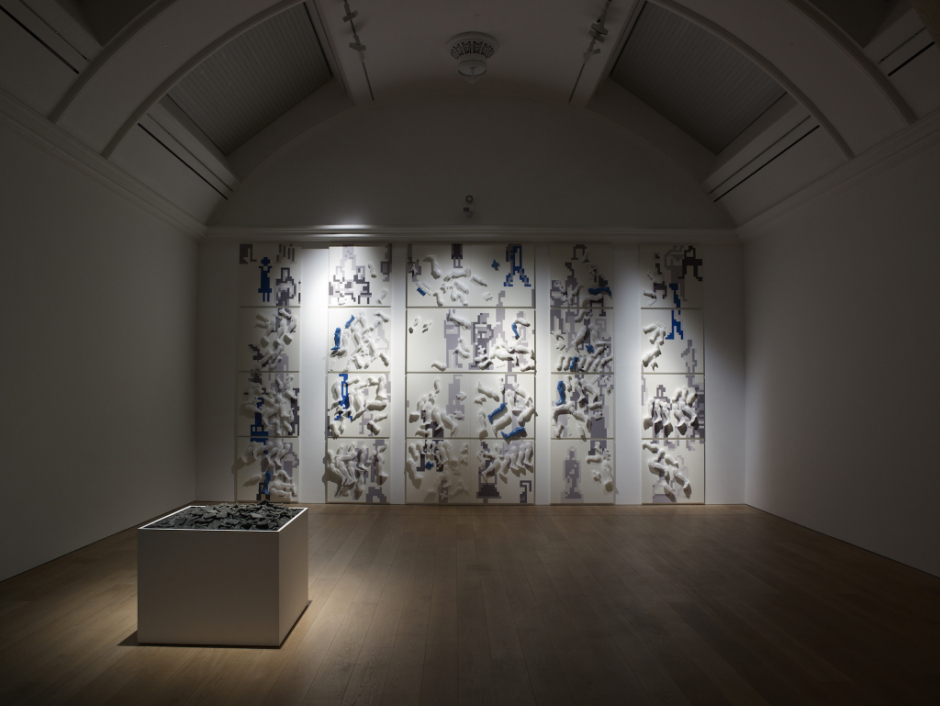The Russian Doll Cutter
Inside the Russian doll, as every child
knows, is another doll, which though smaller
is made from the same wood, and can be twisted at the waist, just above
the doll’s painted hands, to reveal another doll
which, though smaller, is made from the same wood
and has the same painted eyes, and can be twisted at the waist, just above
the doll’s painted hands, to reveal another
doll, whose little hands beckon you to open
her too, very carefully, as one cracks a quail’s egg
within which you find another doll, whose hands are now
smaller than small, barely hands, something like leaves
from a tiny oak, and you twist her open, the wood so
soft and thin, to reveal another doll, whose tiny shape
now fits between your thumbs, whose painted eyes
seem large because so small, of course
you twist her open to reveal another doll, with tiny
lips and eyes like dots and a waist which twists to reveal
another doll, which as every child knows, is the end
of the dolls, not the infinite. Resolutely shut,
the last doll is different, openly indifferent
though she is also made of wood.
Through this last doll, your mind goes
just to check there’s no secret behind
the secret, no doll of dolls, with her own tiny
wooden soul, painted or un, wooded or sapped
-up, bluntly sawing, slicing, chopping
at her waist, tough as birch-bark, light as
leaf-light, bluntly slicing, your mind
sawing through painted cheeks, hands,
the bean of wood that can’t be twisted
to the un-cut, a chip on the table, a stump.
Big hands still sweating on the idea
of the doll, a singular doll
with one name and seven faces, no
opening, no opening, no opening
a smell of Pushkin’s sweet oak, or
Gogol’s dirty overcoat, a thing
that wants, that wants, that wants.
You put her back, each doll inside the other. The stump
in her brittle skins, so fatally unhappy. She screams,
throws swords, lays waste, you believe she
challenges fate to step outside. Her fate. What is fate to her,
but a rock, a stump, your knife. The dysha in the Matryoshka!
What a con, yet how she talks for such a cheap thing:
what poems she wages, what ideals she torches, as she rattles
her seven faces against one well-loved wooden crack.

